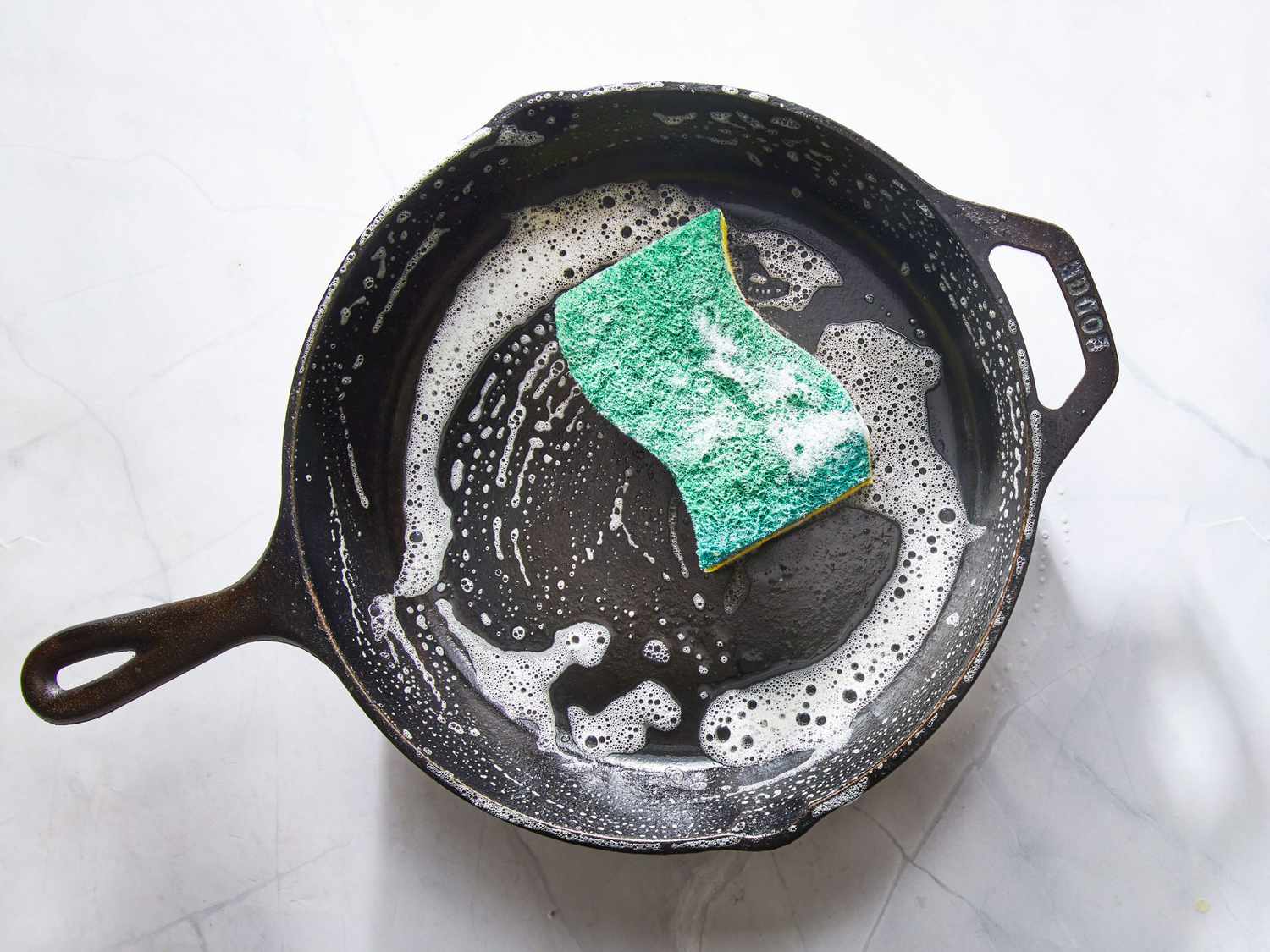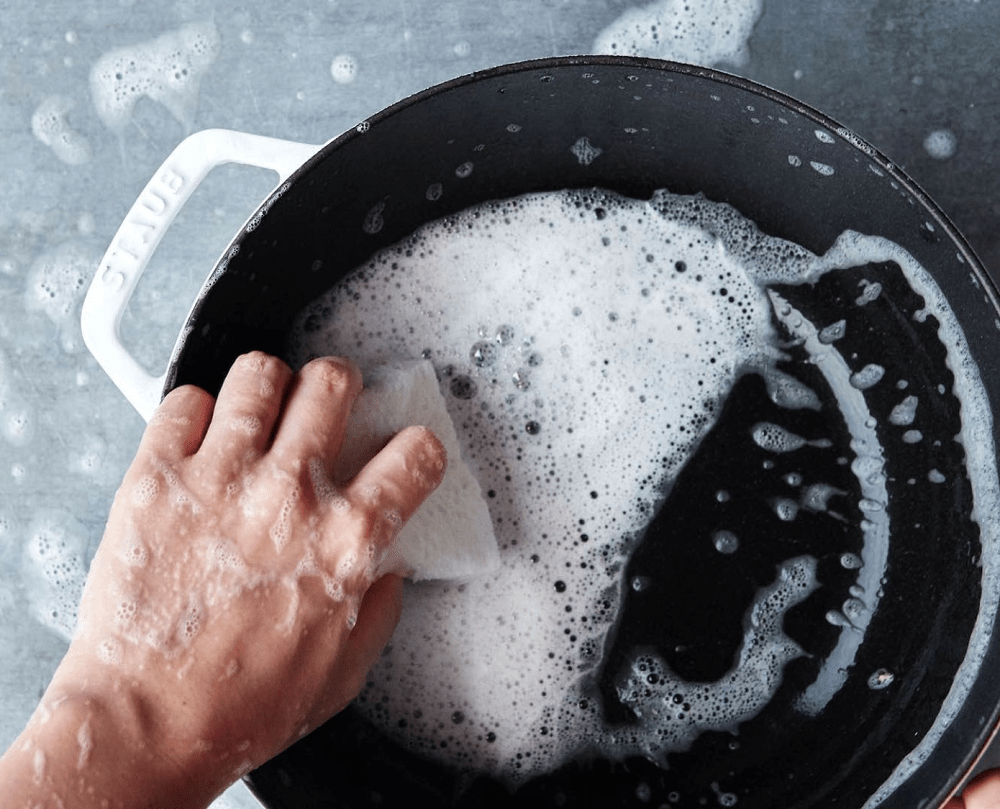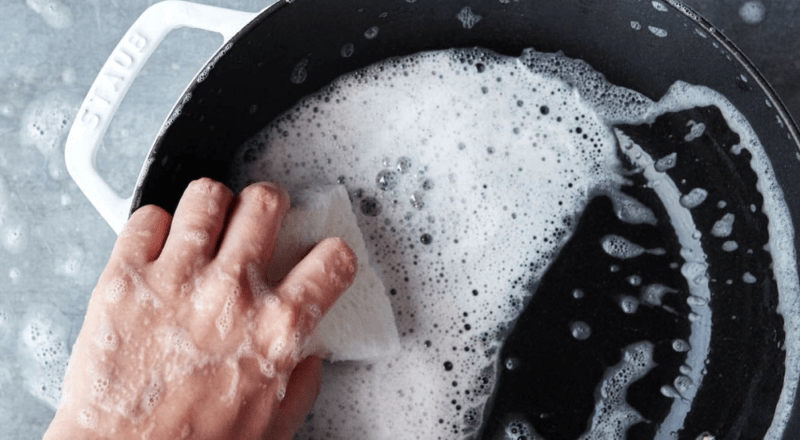
Introduction
Many people love using cast iron cookware for its versatility and durability. However, one common issue they encounter is a metallic smell. If you’re wondering, ‘why does my cast iron smell like metal’, you’re not alone. In this article, we’ll dive deep into the reasons behind this and provide solutions to ensure your cast iron is at its best.

Understanding Cast Iron
Before we explore the causes of the metallic smell, its important to understand what cast iron is. Cast iron cookware is made from a hard, relatively brittle alloy with a high carbon content. This material is known for its excellent heat retention and even cooking temperature.

Why Does My Cast Iron Smell Like Metal?
The primary reason your cast iron might smell like metal is due to improper seasoning or cleaning. When the protective layer of seasoning is compromised, the underlying iron is exposed to air and moisture, leading to oxidation and a metallic smell.

The Science Behind the Smell
The metallic smell originates from the bare iron and is particularly prominent when the skillet is wet or has been washed without proper drying. This smell can be an indication of developing rust, which occurs when iron reacts with oxygen and moisture.
Oxidation
Oxidation happens when iron reacts with oxygen, forming iron oxide. This process can produce a strong metallic odor, especially if the cookware is not properly seasoned.
Contaminants
Sometimes, leftover food, grease, or soap residues may lead to a metallic smell. Ensuring your cast iron is thoroughly cleaned and properly seasoned can help eliminate this issue.
High Carbon Content
The high carbon content in cast iron can also contribute to the metallic smell. Carbon atoms interact with iron molecules, which can cause a distinct aroma.
How To Properly Season Cast Iron
Seasoning is key to maintaining a non-stick surface and preventing metallic smells. Follow these steps to season your cast iron:
Step-by-Step Seasoning Guide
- Clean the cookware thoroughly.
- Apply a thin layer of vegetable oil or shortening.
- Heat the cookware in an oven at 350F for one hour.
- Allow it to cool in the oven.
Repeat this process a few times to build a solid seasoning layer.
Cleaning Your Cast Iron
Proper cleaning methods are essential to prevent the metallic smell. Avoid using harsh detergents that can strip the seasoning. Instead, follow these steps:
Detailed Cleaning Guide
- Rinse with hot water immediately after use.
- Scrub gently with a brush or sponge.
- Dry completely to avoid rust formation.
- Apply a light coat of oil before storage.
For more details, read our hash browns guide and reseasons guide.
Preventing Rust in Cast Iron
Rust is a common enemy of cast iron. Heres how you can prevent it:
Preventive Tips
- Always dry your cookware thoroughly.
- Store in a dry place.
- Avoid soaking in water for long periods.
- Re-season if you notice any rust.
Learn more about rust prevention in our chicken wings guide.
Common Myths About Cast Iron
There are many myths associated with cast iron care. Lets debunk some:
Myth 1: Soap Ruins Cast Iron
Many believe that soap will ruin the seasoning. While it’s best to avoid harsh detergents, mild soap wont harm your cookware if it’s well-seasoned.
Myth 2: Cast Iron Heats Evenly
Contrary to popular belief, cast iron doesn’t heat perfectly evenly. However, it excels in heat retention, making it suitable for slow cooking and baking.
Myth 3: You Can Cook Anything in Cast Iron
While versatile, avoid cooking acidic foods like tomatoes in a cast iron skillet as they can damage the seasoning and react with the iron.
Balancing Flavor and Health
Cast iron cookware adds unique flavors to your dishes. Here’s how you can balance both:
Enhancing Flavors
Proper seasoning enhances the natural flavors of your food. Cooking fatty meats or using oil-based recipes can help maintain the seasoning.
Health Benefits
Using cast iron can contribute to your iron intake, an essential nutrient for your body. This is especially beneficial for those with iron deficiencies.
Why Proper Maintenance Matters
Maintaining your cast iron properly ensures its longevity and performance. It also preserves the quality of your food and enhances your cooking experience.
FAQ Section
How do I remove the metallic smell?
Thoroughly clean and re-season your cast iron skillet as per the guidelines above.
Can I use soap to clean my cast iron?
Yes, but use mild soap sparingly and ensure the skillet is well-seasoned.
What should I do if my cast iron develops rust?
Scrub the rust off with a brush, re-season the skillet, and maintain it properly to prevent future rust.
For more comprehensive guides on cast iron care, visit Feel Good Foodie.
As an Amazon Associate, I earn from qualifying purchases.

